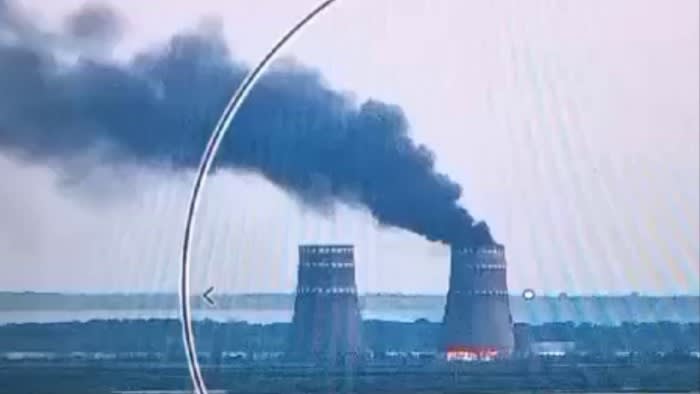Stay informed with free updates
Simply sign up to the War in Ukraine myFT Digest — delivered directly to your inbox.
Ukraine has accused Russia of routing its missiles to fly over nuclear power plants “every day”, a military tactic that heightens the risk of atomic accidents.
Ukrainian energy minister German Galushchenko told the Financial Times that Russian attacks had forced one plant into shutdown on August 26 after a substation was hit. Since then, he said, Russian missiles had increasingly flown over Ukraine’s three nuclear facilities, which generate almost 60 per cent of the country’s electricity.
“This is about three operating nuclear stations,” Galushchenko said, adding that while the facility that went into “emergency blackout” was in central Ukraine, the other two that have been targeted are much further west, near the border with the EU.
The minister said the August attacks and the subsequent flyovers had heightened the country’s fears of a nuclear disaster. Similar fears flared up when Russia seized control of Ukraine’s largest plant at Zaporizhzhia in 2022 and in subsequent attacks on the facility, where the reactors have since been shut down.
A proponent of expanding nuclear power in the country, Galushchenko said that despite the high costs, this form of energy would provide Ukraine with the stable energy it needs.
Russia’s strikes this year have become more precise compared with its first attacks on Ukraine’s energy system in autumn 2022, according to Ukrainian energy companies and officials.
The August 26 attack only led to minor disruptions for consumers as Ukrenenergo, the company that owns the energy grid, was able to repair the damaged transformers quickly. But emergency work in other cases was delayed as Russia used cluster munitions — rockets filled with small mines.
Galushchenko said that the fact that Russia had targeted the substations connected to the nuclear plants showed that it was calculated attack.
For the past month and half, he said, “they have changed the routes of their drones and missiles . . . to go near or above the nuclear power station”. While in the past such occurrences were rare and would prompt complaints at the UN atomic agency, “now it is happening every day”.
Ukrainian President Volodymyr Zelenskyy said in his UN address last month that Russia had plans to target his country’s three nuclear plants.
Overall, Russia has almost doubled its drone attacks on Ukrainian targets, from 790 in August to 1,339 in September, according to Ukraine’s air force.
Galushchenko said it was hard to know where Russia would draw a line when targeting nuclear plants, but noted that if a reactor got hit, “for Russia this [would be] the end”, with Rosatom losing “all their projects around the world”.
Ukraine’s state nuclear company, Energoatom, has been criticised in recent months for not building concrete shelters, known as Level 2 protection, for its substations around the plant. The company put out tenders in late September and early October but construction of the 20-meter tall structures can take up to a year.
Energoatom said that the accusations that it had not done enough were part of an “information attack” on the company. It said that information about protective structures at its plants was classified in order not to aid Russia.


